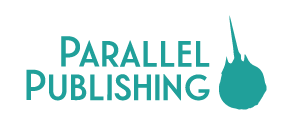From the Parallel Worlds Magazine archives.
Aliya Whiteley has been writing some interesting fiction over the last few years, from the horror of ‘The Beauty’ to the peculiar charm of ‘The Arrival of Missives’. She has been nominated and shortlisted for a number of awards – most recently shortlisted for the Arthur C. Clarke Award, John W. Campbell Award, British Fantasy Award and Brave New Words Award for the strange story ‘The Loosening Skin’. Her stories are always distinctive, personal and often full of wild ideas.
I don’t know about anyone else but since Covid hit back in March 2020, I’ve been avoiding a lot of fiction that involves pandemic apocalypse stories. At this point though I think most of us have grown accustomed to the many changes our real pandemic has brought about and thankfully it falls short of most apocalyptic scenarios you read about (although secretly I feel ever so slightly disappointed in the lack of zombies). On the surface Greensmith seems to be about just such pandemics, featuring as it does a planet-sweeping plague. But it’s a great deal more, exploring the vast, inconceivable nature of the universe and how insignificant and small we are. There are many other themes too: questions of morality and mortality mix with concepts of space-time, how disasters can happen even with the greatest of intentions — along with how people can refuse to see how their actions can be the real problem.
A fast but thoughtful journey that throws ideas at you quicker than you can blink.
Greensmith is set sometime in the near future, during a war with a difference. This war isn’t about the invasion of land or the control of oil: instead it’s a fight over information, being fought online, where history is being deleted and rewritten. Those who enlist protect data centres to prevent such destruction. It’s a stark parallel to the increasing acceptance of fake news and the rise of ‘alternative facts’, along with the acceptance that information online is some trusted source of truth.
Against this backdrop, we are introduced to Penelope Greensmith (Pea), who wants to escape, following a much-welcomed ceasefire of data destruction. Moving to a remote location, she pursues the building of a vast seed bank, thanks to a strange device left by her late father known as a ‘vice’. Just before a planet-wide plague arrives, a strange Horticulturist (Hort) turns up, asking for her help to stop the plague sweeping across the entire universe. Hort believes the vice might hold the key to salvation.
Pea is whisked away just ahead of the plague sweeping across the Earth, turning plants into goo and sealing the fate of humanity. Hort shows her the vast, mind-boggling mysteries there are amongst the stars. Meanwhile her daughter Lilly remains, trying to track down Penelope while struggling to survive the terrible, cataclysmic events.
Exploring the vast, inconceivable nature of the universe and how insignificant and small we are.
The resulting adventure is quite the wild ride; a fast but thoughtful journey that throws ideas at you quicker than you can blink. The author’s voice is quite distinct, lively, humorous and distinctly British; it’s like spending the day with the David Tennant incarnation of Dr Who, bursting with boundless, positive energy despite the bleak outlook — mirrored by the way Hort and Pea travel across time and space.
Periodically we switch back to Lilly and Pea’s ex-husband Graham, something of a juxtaposition to the boisterous adventures that Pea is experiencing. There is a similar parallel in the blend of light-hearted comedy and serious story elements, which at times does downplay the gravity of the situation.
One of the highlights of the novel is how the author explores our limited perspective, Penelope surviving such vast and complex ideas by looking at them through human terms. Alien life is equated to things she is familiar with: from flamingos fighting armoured lizards to vast, planet-sized plants that flower as the head of Morgan Freeman. It’s one of the big problems it seems we as a species have when trying to understand the universe: our definitions are often narrow and limited, lacking an ability to see things from a different perspective. When looking for alien intelligence, why do we assume they must use radio signals like ourselves?
Like the author’s previous stories, Greensmith surprised me. It explores some fascinating themes and offers compelling arguments on big ideas. It does so without being too serious, refuses to get bogged down in detail, and remains wildly, weirdly, entertaining.
Title: Greensmith
Author: Aliya Whiteley
Publisher: Unsung Stories
Pages: 348
Format: paperback
ISBN-13 : 978-1912658077



